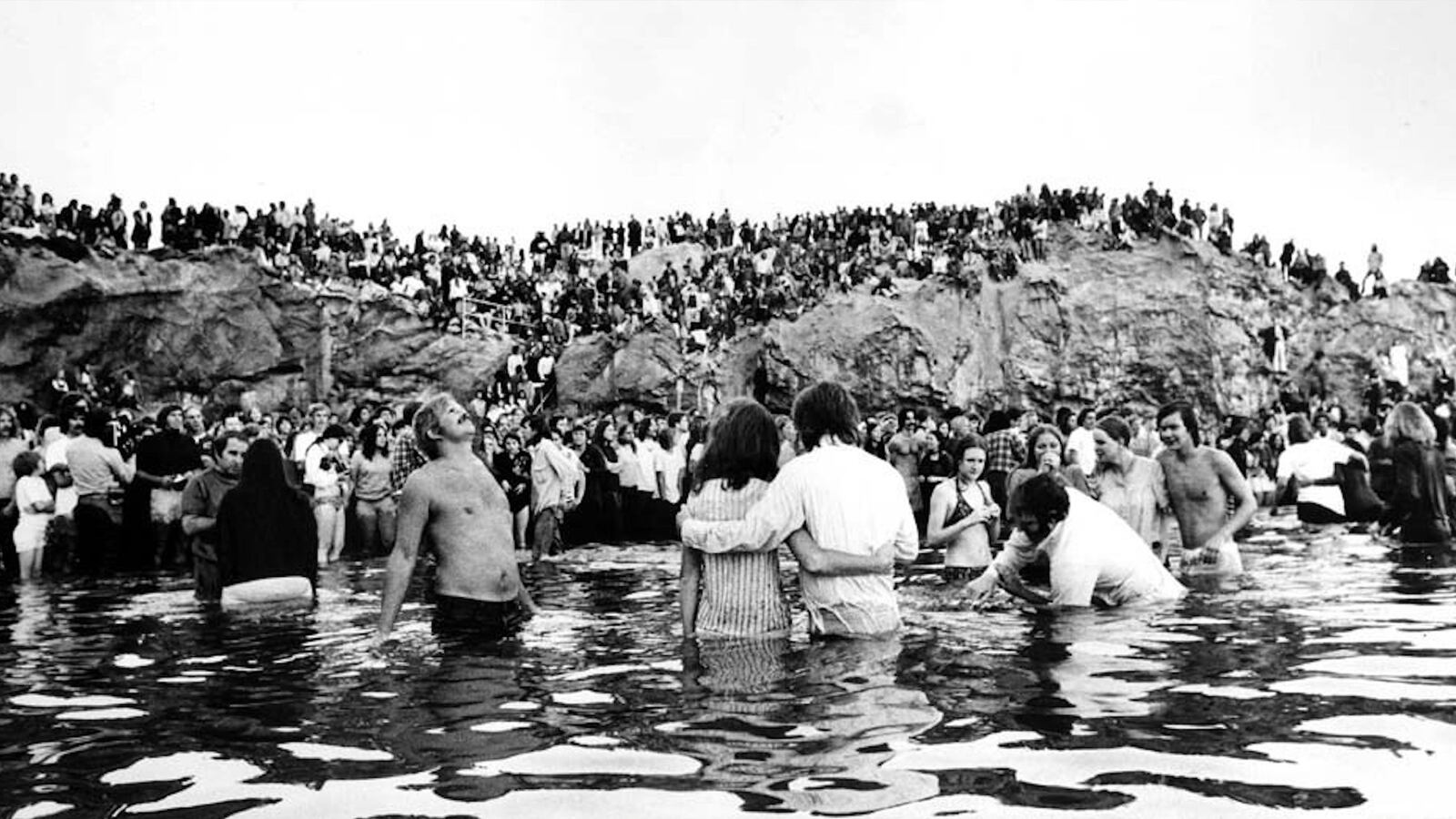A true-crime podcast is nothing if it can’t paint a vivid picture of its central events while also drawing listeners into its tale with first-person accounts, contextual historical background, and compelling and insightful characters. Norco ’80, fortunately, hits all those marks, and moreover, it has a story that’s not only gripping in its own right but boasts considerable relevance for today, when issues of discriminatory cops and law-enforcement militarization are at the forefront of the national conversation.
Produced and hosted by Antonia Cereijido, and presented by LAIst Studios, Norco ’80 (out now) shines a spotlight on an infamous bank heist staged on March 9, 1980, in Norco, California, a quiet hamlet about an hour east of Los Angeles in the Inland Empire. On that fateful day, five men—mastermind and ringleader George Wayne Smith, his housemate and former coworker Chris Harven, Chris’ brother Russell Harven, and siblings Manuel and Belisaro Delgado—stormed downtown’s Security Pacific Bank in ski masks and military fatigues, collecting as much cash as they could in two minutes, which was the amount of time they estimated they had before police arrived. It was a well-orchestrated plot, but as so often happens with such crimes, fate intervened—in this case, via an officer right around the corner who was able to arrive at the scene sooner than anticipated.
At which point, all hell broke loose, because Smith and his cohorts had come armed to the teeth with AR-15s, homemade bombs, knives, machetes, and even a samurai sword. And they didn’t hesitate to use their firepower on anyone who got in their way.
Through both audio interviews with Smith conducted by detectives immediately following his capture, as well as clips of the police radio chatter during the calamity, Norco ’80 crafts a compelling portrait of a crime that, as Smith himself says, “Was a botched job from the word go… everything that we would have expected to go wrong went wrong.” Without waiting for a lawyer, Smith opened up to his captors about his crew’s artillery, his self-produced explosives, and the copious marijuana and booze they’d all consumed before heading out on their perilous venture. In these recordings, Smith sounds exhausted and defeated, like a man who’s just endured a seriously traumatic ordeal, and the further Cereijido’s podcast delves into its insane subject matter, the more it becomes clear that Smith’s weariness was well-earned, especially considering that his gang’s dangerous and murderous efforts went for naught.
Norco ’80 is shrewd enough to not divulge details about its story’s conclusion from the get-go, instead splitting time between recounting the madness of March 9 with details about the historical context in which it took place and the various players involved. Buoyed by new chats with many principals, Cereijido affords various up-close-and-personal perspectives on the central action. Those, in turn, often convey a larger sense of what life was like in 1980 Southern California. For example, Deputy Sheriff Andrew Delgado-Monti remembers engaging the robbers directly outside the bank, and having to take cover beneath his car from a hail of bullets, only to be left behind, injured, when his fellow officers chased after the fleeing crooks—a situation that he casts as another manifestation of the anti-Mexican prejudice he faced throughout his upbringing and career. In moments such as those, the micro and the macro dovetail to present a comprehensive view of the relationship between the crime itself, and the climate that begat it.

The police manhunt for the robbers
LAIst StudiosThe charismatic Cereijido guides listeners step-by-step through Smith and company’s daring plot, aided by testimonials from a collection of officers who were part of the hunt for the thieves—including San Bernardino Deputy Daniel “D.J.” McCarty, who wound up at the forefront of the fight thanks to the fact that his department just happened to be in possession of an M-16 that could combat the crew’s high-powered weaponry. At the same time, Norco ’80 reveals the origins of this brazen snatch-and-grab.
In an era of nuclear fear-inspired doomsday cults, and a California environment rife with Christian youth movements and bank robberies, Smith—an out-of-work abusive husband to two wives who left him—had become obsessed with preparing for the End Times. To fund the bunker he was building on his property, he and Chris had begun growing and selling marijuana, and when that income didn’t meet their needs, they turned their attention to what they believed would be an easy target: Security Pacific Bank.

Ringleader George Wayne Smith following his arrest
Riverside Sheriff’s OfficeOver the course of its first four episodes (which are all that’s currently available), Norco ’80 touches upon the explosive cocktail of real-world anxieties and rapture-inspired religiosity that grabbed ahold of Smith and his merry marauders. It also suggests that their eventual assault—in which one cop was killed, and eight others (as well as numerous civilians) were injured—was the inspiration for law enforcement departments around the country to begin outfitting themselves with the sort of tactical armaments and gear normally reserved for overseas battlefields. That topic is destined to be at the forefront of future installments. To date, though, the series primarily fixates on the terrifying experiences of those forced to confront deadly circumstances with only their wits, their insufficient handguns (and an occasional shotgun), and guidance from an airborne helicopter.
At least, until that chopper was shot out of the sky by the criminals, who additionally had in their possession a German assault rifle known as “The Heckler.”
From Gary Hakala’s startling memories of being kidnapped and carjacked by the robbers (who bound his arms and legs and stuffed him in his ‘70s van’s tiny closet as they fled police) to McCarty’s eyewitness report about a fellow officer’s death in the line of fire, Norco ’80 proves a gripping and timely saga about financial desperation, military violence, and religious delusion and radicalization. “Criminality isn’t my profession,” Smith told detectives shortly after his apprehension, and while the messiness of his scheme bears that out, it doesn’t change the fact that his unforgettable heist solidified his illicit legacy—and, in the process, helped drastically alter the cops-and-crooks landscape of modern America.


